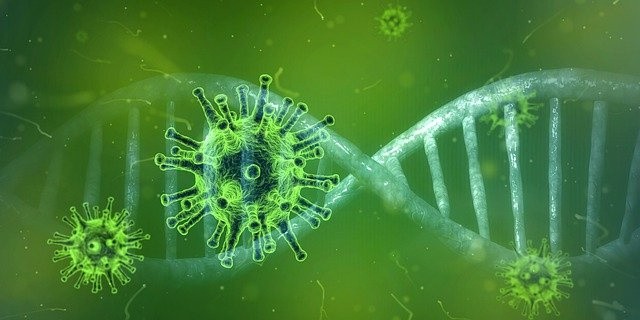
Many have the mistaken fallacy that vaccines drive coronavirus mutations like the Delta variant, which is not the case. The process is more complex as the virus needs vital cellular means, not its own, to evolve adaptations distinct from the COVID strains existing today.
In the early days of the pandemic, scientists had assumed that SARS-CoV-2 could mutate but not as fast as it did. The very first variants in Wuhan have significant changes in their structure. However, it still stands how lethal a strain needs to be researched before even calling it 'highly contagious' or can evade vaccine antibodies, for that matter.
Viral mutation does not always mean lethal
Most people don't understand how the strains come about and get more confused when big concepts are combined in evolutionary biology, especially how random changes in strains are lethal or sometimes not, reported Scitectdaily.
To cite an example, the rapid evolution of the peppered moth in the mid-1800s is similar to the COVID virus. Similarly, both the moth and the virus adapt to change to survive. The moth used to be white, but it became darker when exposed to soot from factories in England.
Like vaccines causing changes in the contagion to survive one way or another, the peppered moth developed camouflage. First, Wuhan coronavirus strains got more resilient as vaccines were developed but did not spread out enough.
The authors of the study, Vaugh Cooper and Lee Harrison, from Pittsburgh University, paid close attention to the development of viral pathogens and how changes are noteworthy and arduously went over the virus data the past year and tracked these strains.
One of the problems with the emergence of new strains of COVID is that there are not enough vaccinated people, like the reaction of the moths to darken to evade predator birds. To date, only about 40% globally have been given the vaccine, cited by Our World in Data. It would seem there are more infections than COVID-19 vaccinations that effectively make the majority without immunity. Discovery of the Delta or other variants is inevitable, but fearmongers say a deadly one is around the corner.
Viruses cannot reproduce without their genetic code. Coronaviruses have RNA in their cells to replicate, and the process is not always perfect. COVID is RNA-based for genetic data, resulting in more mistakes than DNA. So, when a strain is produced, there is an error of 3%, resulting in a mutation. Despite what many studies sometimes purport without enough evidence that it is serious, most of the changes are mostly harmless. Not all mutations produce cell killers, noted the DOI via Science.
Transmission produces a new variant
Whether the infected host will pass on the same strain as the infected, getting a mutant strain passed onto another is less likely. Data suggests that almost no mutant strains are transmitted to someone else. The odds of virus mutants passed on are called the 'population bottleneck.' But this bottleneck can be overrun if there are too many mutations. Under these situations, the safest way to restrain the development of the coronavirus is to lessen the number of contaminations. If this is the objective, then vaccines could help as a solution.
Related Article : COVID-19 C.1.2 Variant Discovered in South Africa Should Not be Cause for Panic, Here's What WHO Says
© 2025 HNGN, All rights reserved. Do not reproduce without permission.








